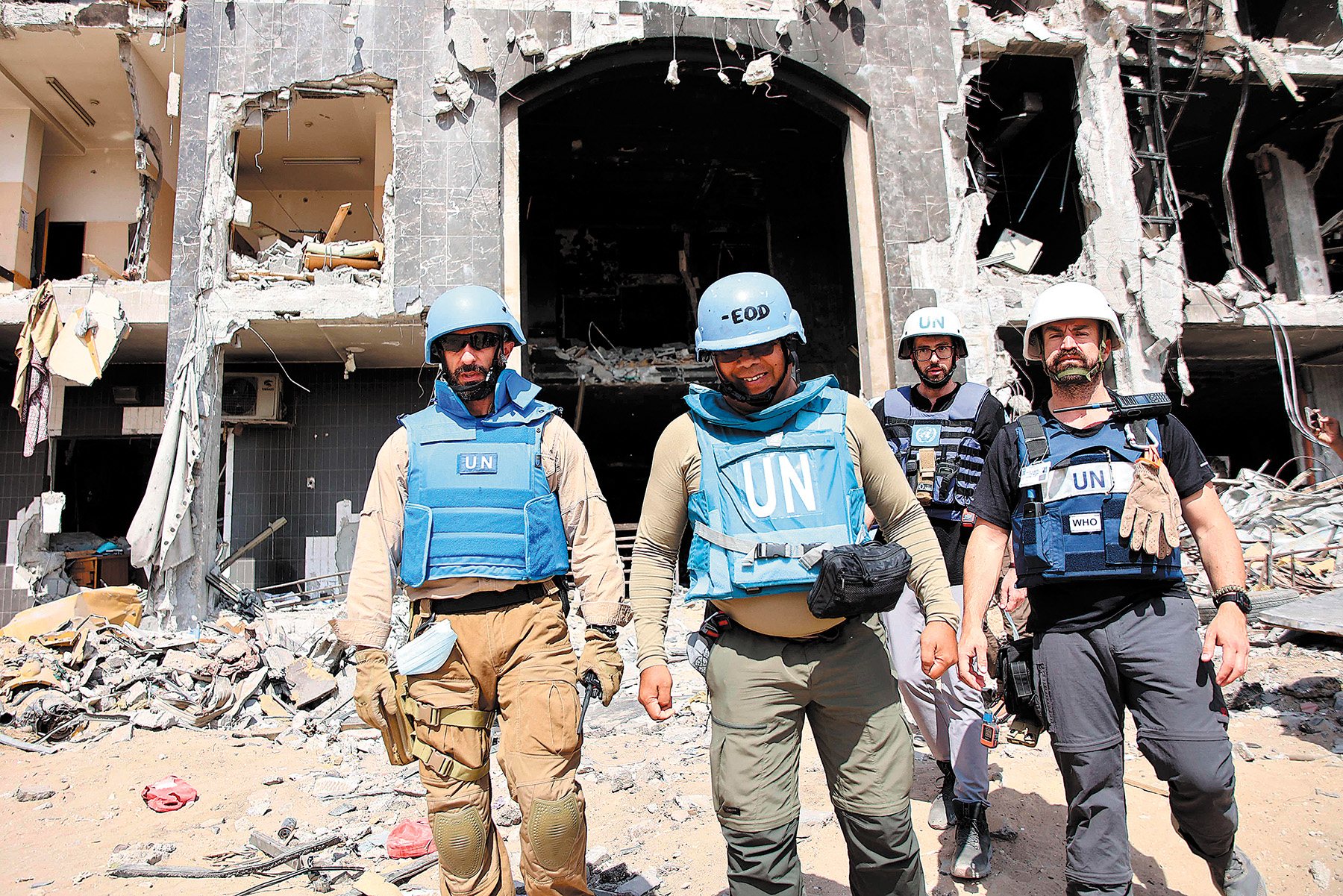Muslim world marks Ramadan’s end amid growing calls to stop Palestinian suffering

From the Al-Aqsa Mosque compound in East Jerusalem to Islamic locations around the world, Eid prayers this year were subdued and more solemn than usual as the plight of Palestinians in Gaza was uppermost in everyone’s mind, with leaders of Muslim-majority countries renewing calls for an end to the bloodshed and hunger in Gaza.
Ramadan ended with the United Nations Security Council Resolution 2728, which called for a cease-fire during the holy month, left in the cold, while an agency of the UN suspects Israel could be using starvation as a weapon as it limits food aid convoys into Gaza.
Organization of Islamic Cooperation Secretary-General Hissein Brahim Taha, in his Eid message, said that as Muslims mark the festival ending Ramadan, the heart “is overwhelmed by Palestinians languishing under unprecedented brutal aggression of the Israeli occupation forces”. They “did not give the people a space to pray or even observe the Ramadan fast in peace”, but rather “intensified their killing, destruction, and starvation”.
US President Joe Biden has voiced his strongest criticism of Israeli Prime Minister Benjamin Netanyahu yet. “I think what he’s doing is a mistake. I don’t agree with his approach,” Biden told Spanish-language TV network Univision in an interview that aired on Tuesday night.
“I think it’s outrageous that those three vehicles (of WCK aid workers) were hit by drones and taken out,” Biden told the interviewer. “What I’m calling for is for the Israelis to just call for a cease-fire, allow for the next six, eight weeks, total access to all food and medicine going into the country.”
Leaders of Muslim nations echoed the same sentiments in their Eid messages, calling for an end to Israel’s military campaign in Gaza, which has entered the seventh month, prompting fresh attention on the suffering of people in the Palestinian enclave.
On April 9, in his Eid al-Fitr speech, Saudi Arabia’s King Salman reiterated the need to stop attacking the Palestinian people and end their suffering by recognizing their legitimate rights, including the establishment of an independent state.
Jordan’s King Abdullah II said in a social media post that “we seek God’s assistance” to support and empower “our brothers and sisters in Gaza”, and that he hopes Eid brings back “joy and blessings to everyone”.
King Abdullah’s message came a day after he released a joint statement with Egypt’s President Abdel Fattah El Sisi and France’s President Emmanuel Macron stressing the need for an immediate ceasefire in Gaza.
Palestinian President Mahmoud Abbas on April 9 called for limiting Eid activities to religious rituals only, citing the difficult circumstances as the result of the ongoing fighting in Gaza.
Palestinian News Agency WAFA reported that Muslim Palestinians in Gaza performed Eid al-Fitr prayers on the ruins of mosques that had been destroyed by the Israeli attacks, in the shelter-schools “to which they were displaced, and in public squares in the rain and cold weather”.
Australian Prime Minister Anthony Albanese said on social media that “this year, the suffering in Gaza will mean many Muslim Australians will mark Eid al-Fitr with sorrow”.
UN Secretary-General Antonio Guterres said that his heart “is broken” as he is aware that in Gaza, Sudan, and many other places Muslims will “not be able to celebrate Eid properly” because of conflict and hunger.
The United Nations said Israel was deliberately delaying and blocking food supplies from entering Gaza, Arab News reported.
Further, the UN Office for the Coordination of Humanitarian Affairs said statistics from March showed that it was more difficult to get clearance for food aid delivery, particularly to the north where 70 percent of the population faces famine conditions.
Meanwhile, the Council on American-Islamic Relations (CAIR), a Muslim civil rights and advocacy organization in the US, slammed US Defense Secretary Lloyd Austin after the official said, during a Senate hearing, that the US does not have any evidence that Israel was committing genocide in Gaza.
“We strongly condemn Secretary Austin for his dishonest and delusional genocide denial, which completely ignores the fact that the Israeli government made racist, genocidal threats at the start of this war and then spent six months acting on those threats by destroying civilian infrastructure, sparking a famine, ethnically cleansing entire cities,” CAIR said in a statement on its website.
“Secretary Austin and the rest of the Biden administration should be ashamed for making … (the US) complicit in what is obviously a genocide,” it added.
Since Oct 7 last year, Israel bombardment has killed more than 33,000 people in Gaza, including about 100 journalists and more than 200 aid workers.


